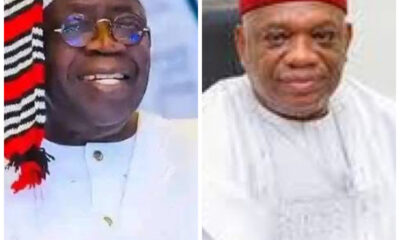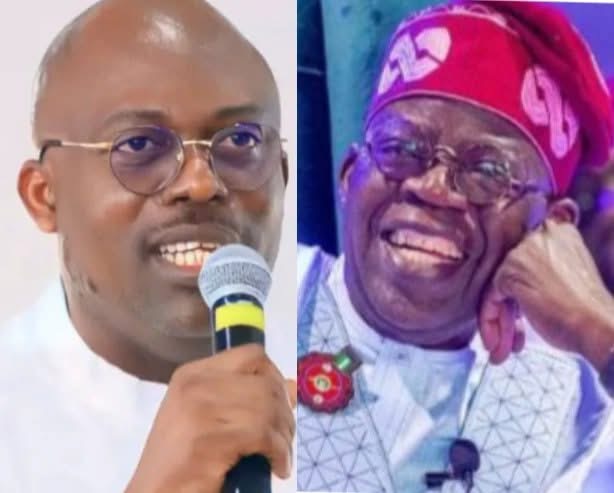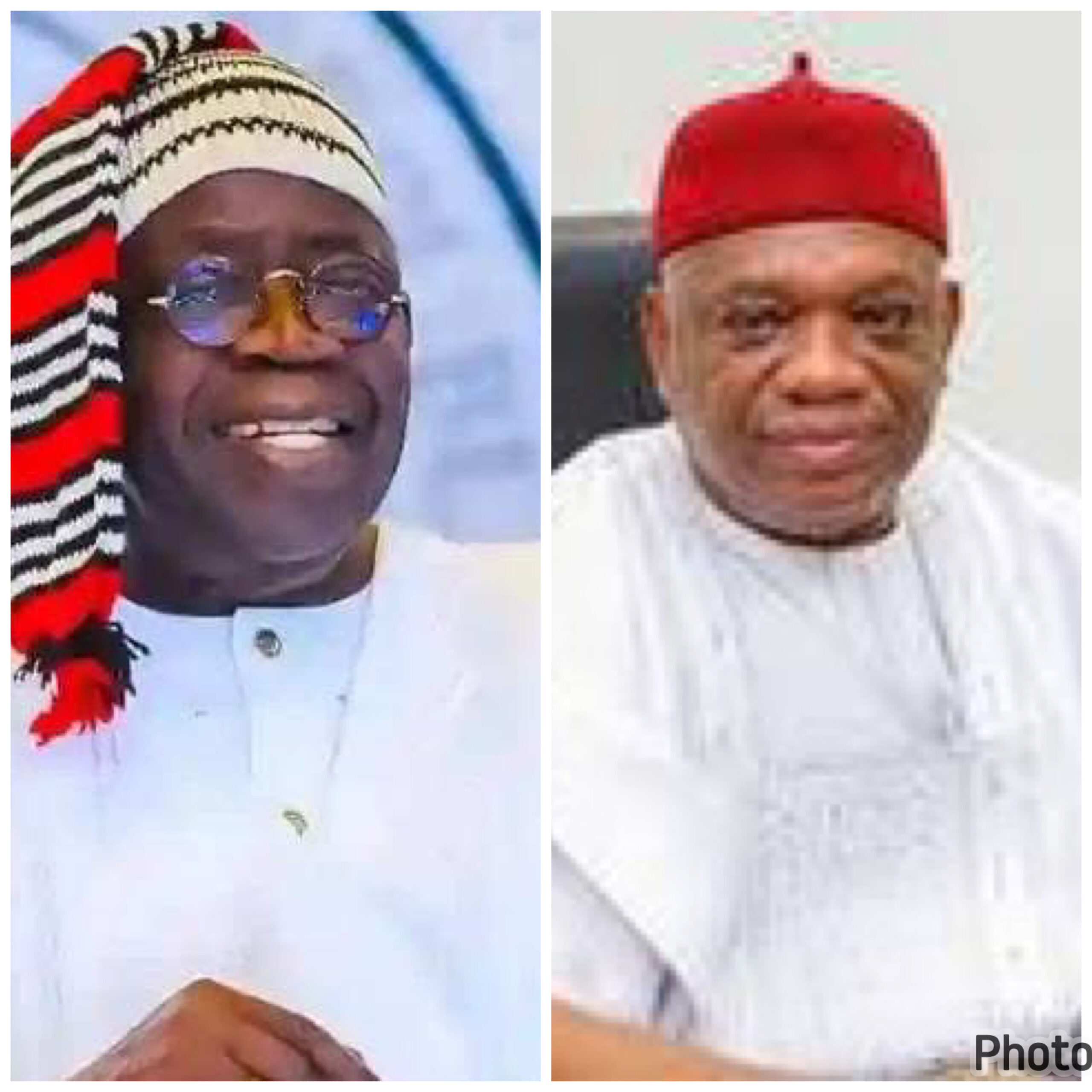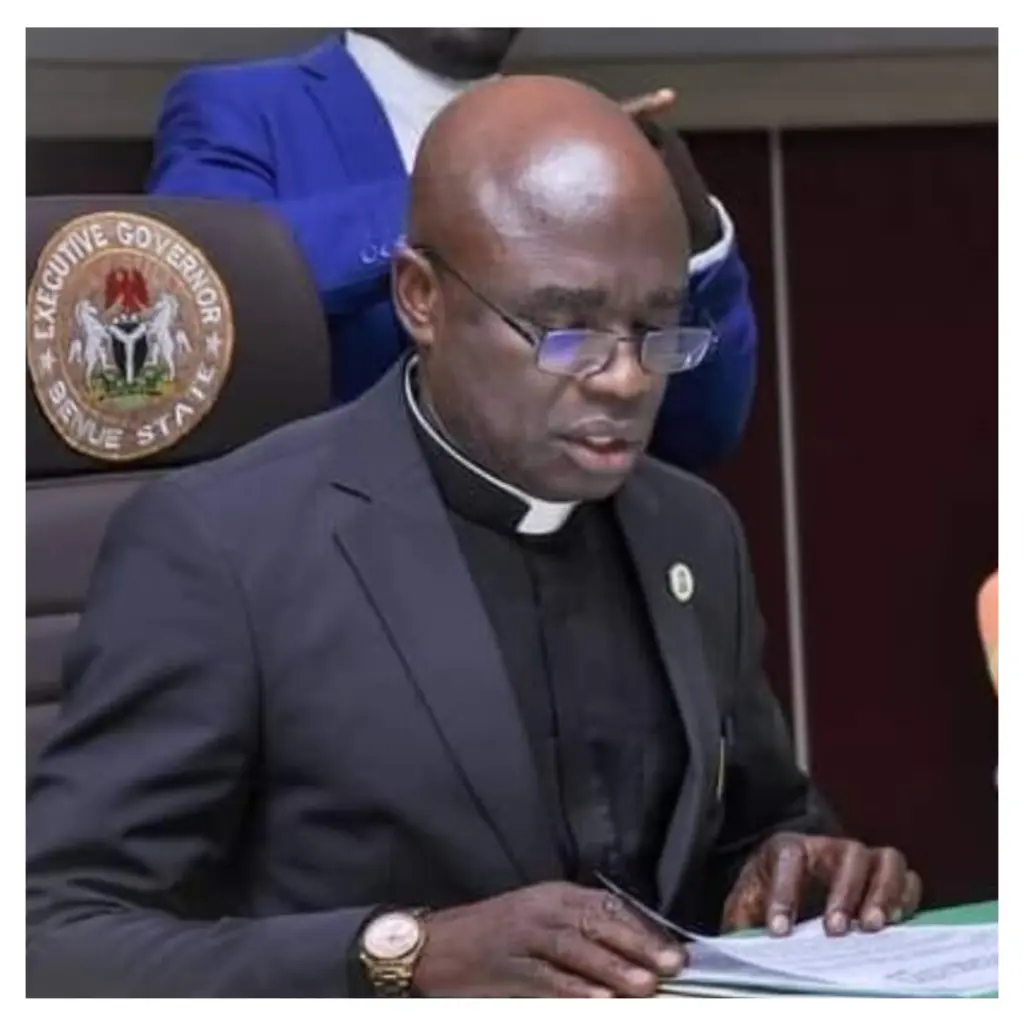Politics
Autonomy: FG, govs, LG chairs sign implementation agreement
Published
5 months agoon
By
Ekwutos BlogAutonomy: FG, govs, LG chairs sign implementation agreement
The Committee on Local Government Autonomy set up by the Federal Government has concluded its meetings and signed the technical document, which is expected to be transmitted to President Bola Tinubu soon.
The National President of the National Union of Local Government Employees, Hakeem Ambali, made this known in an interview with our correspondent on Tuesday.
In May, the Federal Government, represented by the Attorney-General of the Federation and Minister of Justice, Lateef Fagbemi, filed a lawsuit to challenge the governors’ authority to receive and withhold federal allocations meant for Local Government Areas.
The suit sought to prevent state governors from unilaterally dissolving democratically elected local government councils and establishing caretaker committees.
The AGF argued that the constitution mandated a democratically elected local government system and did not allow alternative governance structures.
On July 11, 2024, the Supreme Court gave a landmark judgment affirming the financial autonomy of the 774 LGs in the country, noting that governors could no longer control funds meant for the councils.
The seven-member Supreme Court panel, led by Justice Garba Lawal, ruled that it was illegal and unconstitutional for governors to manage and withhold LG funds.
The apex court also directed the Accountant-General of the Federation to pay LG allocations directly to their accounts, as it declared the non-remittance of funds by the 36 states unconstitutional.
Also, on August 20, the Federal Government instituted a 10-member inter-ministerial committee to implement the Supreme Court’s ruling on local government autonomy.
The committee members include the Minister of Finance & Coordinating Minister of the Economy, Wale Edun; Attorney-General of the Federation & Minister of Justice, Lateef Fagbemi SAN; Minister of Budget & Economic Planning, Abubakar Bagudu; Accountant-General of the Federation; Oluwatoyin Madein and the Governor of the Central Bank of Nigeria, Olayemi Cardoso.
Others are the Permanent Secretary, Federal Ministry of Finance, Mrs Lydia Jafiya, the Chairman, Revenue Mobilisation Allocation & Fiscal Commission, Mohammed Shehu, and representatives of state governors and the local governments.
The committee’s primary goal is to ensure that local governments are granted full autonomy, allowing them to function effectively without interference from state governments.
Speaking to our correspondent on Tuesday, Ambali said, “The committee has held its final meeting and we have signed the technical document which will be transmitted to Mr President so by November end. It is expected that states will receive their allocations from FAAC. Also, I can tell you that the President is eager to receive that document. The committee worked within the time frame that was provided.”
Meanwhile, the National Union of Teachers has expressed fears about the capacity of LGs to pay the N70,000 new minimum wage to primary school teachers.
The NUT’s apprehension is hinged on the failure of the councils to implement the former N30,000 minimum wage.
Findings by our correspondent show that some LG workers in Nasarawa, Enugu, Zamfara, Borno, Yobe, and Kogi states, among others, have remained on the N18,000 minimum wage, which was approved in 2011.
However, the inability of the councils to implement the minimum wage has been blamed on the failure of the government to fully implement the LG autonomy.
Data obtained from the NUT revealed that teachers in LG primary schools were not paid the former minimum wage.
In Enugu State, for instance, LG workers were exempted from benefitting from the minimum wage though the state workers enjoyed the minimum wage salaries.
Also, Abia, Adamawa, Bauchi, Nasarawa, Kogi, Sokoto, Taraba, Yobe, Zamfara, Imo and Gombe States did not implement the old minimum wage for teachers at both state and local levels.
Confirming this, the General Secretary of the National Union of Teachers, Dr. Mike Ene said, “I can tell you that some states didn’t even implement the N18,000 minimum wage for teachers at the local level. Some governors refused to pay stating that the teachers are under the employment of the local governments.
“There should be no form of segregation when it comes to the implementation of the minimum wage. We all go to the same market. There is no specific market for local government workers. However, we commend all the governors who have come out to say that the minimum wage will be implemented across the board.
“Also, the NLC has vowed to shake the country by December should state governments fail to implement the minimum wage so I can tell you that the move by the NLC will force things into play.”
But NULGE president Ambali assured that the minimum wage would be implemented across the board when the LG autonomy commences.
“Over the years, governors have had one excuse and that is the fact that they always claimed that LGs are autonomous so they can’t negotiate minimum wage on behalf of LG workers. But the truth is that LGs were never autonomous during those periods.
“However, during the negotiation of the new minimum wage, the President brought in representatives of ALGON (Association of Local Government of Nigeria) to also negotiate and with the LG autonomy coming into play, that will be settled. The NLC has also given an ultimatum of December for all states as regards the payment of the minimum wage,” he added.
You may like


“Tonight the Pope’s remains will be placed in an open coffin.


JUST-IN: President Tinubu Allegedly Had a Secret Meeting With Rivers State Governor, Sim Fubara and The 27 Pro-Wike Assembly Members in London


PRESIDENT TINUBU CELEBRATES SENATOR ORJI UZOR KALU AT 65


PRESIDENT TINUBU’S STATEMENT ON THE PASSING OF HIS HOLINESS POPE FRANCIS


Trump orders American flags flown at half-mast to honour Pope Francis


Meet African Cardinals who could be the next Pope
Politics
JUST-IN: President Tinubu Allegedly Had a Secret Meeting With Rivers State Governor, Sim Fubara and The 27 Pro-Wike Assembly Members in London
Published
33 minutes agoon
April 21, 2025By
Ekwutos Blog
A source familiar with the political situation in Rivers State has revealed a secret meeting between President Tinubu, Governor Sim Fubara and the embattled 27 Pro-Wike Assembly members in United Kingdom. The source who played anonymity claimed that the reason President Tinubu stayed long away from Nigeria after embarking on a brief holiday was to ensure a conclusive agreement between Gov. Fubara and the 27 Pro-Wike Assembly members.
The source also claimed that the FCT minister, Chief Barr. Nyesom Wike May not be unaware of the ‘foreign meeting amidst the political tension in Rivers State.
According to the source, Governor Fubara is being reined upon to join the ruling All Progressive Congress (APC) to support President Tinubu and save his political career.
It’s worthy to note that President Tinubu, Gov. Sim Fubara and the 27 Pro-Wike Assembly members were all on holiday in London. President Tinubu has just returned to Nigeria after spending 19 days in Europe.
Politics
PRESIDENT TINUBU CELEBRATES SENATOR ORJI UZOR KALU AT 65
Published
58 minutes agoon
April 21, 2025By
Ekwutos Blog
STATEHOUSE PRESS RELEASE
PRESIDENT TINUBU CELEBRATES SENATOR ORJI UZOR KALU AT 65
President Bola Tinubu congratulates Dr Orji Uzor Kalu, former Governor of Abia State and Senator representing Abia North Senatorial District, on his 65th birthday.
President Tinubu reflects on their enduring friendship and shared commitment to national progress, rooted in their membership of the “Class of ’99” Governors.
The President extols the former Majority Whip’s unwavering patriotism, recalling decades of collaboration marked by mutual respect, even with political differences.
He lauds Senator Kalu’s entrepreneurial spirit, as epitomised in his establishment of Slok Holding and investments in banking and the media, ventures that have created hundreds of jobs.
“Senator Kalu, my friend, is a patriot whose life embodies resilience, generosity, and the transformative power of visionary leadership. On this milestone, I celebrate his contributions to our nation’s economic and political tapestry,” President Tinubu says.
The President prays that God Almighty will grant Senator Kalu renewed strength, wisdom, and many more years of impactful service to Nigeria and humanity.
Bayo Onanuga
Special Adviser tot the President
(Information and Strategy)
April 21, 2025
Politics
Benue was bleeding, now it’s healing – Governor Alia
Published
7 hours agoon
April 21, 2025By
Ekwutos Blog
Benue State Governor, Hyacinth Alia, has declared that the state, once overwhelmed by insecurity and mismanagement, is now on a path to healing under his leadership.
Speaking in an exclusive interview with Vanguard, Alia reflected on his transition from Catholic priesthood to politics, his administration’s efforts in tackling insecurity, and his unique approach to fiscal discipline.
As he marks 35 years in the priesthood this July, Alia revealed that his decision to enter politics stemmed from a deep understanding of the challenges facing Benue.
“I’ve spent my life serving the people of Benue in the suburbs, understanding their struggles. It wasn’t difficult for me to transition because I was already working to fix problems as a priest,” he said.
Alia said his transition into politics was driven by an urgent desire to bring change. “As a priest, you spend your time supporting people, solving environmental and family problems. Politics was just an extension of that, although with the added responsibility of navigating a complex political environment,” he added.
On the issue of insecurity, the governor delved into the historical context, explaining that Benue’s security challenges are linked to broader regional dynamics. He noted that Benue, like other parts of Nigeria, is facing a deepening crisis caused by the ECOWAS transhumance protocol, which allowed for cross-border grazing.
“When we were growing up, there were no issues with herders. But after the ECOWAS protocol was adopted, things drastically changed,” he explained.
Alia disclosed that as of June 2024, about 500,000 people from 17 of the state’s 23 local governments were displaced due to violence.
“Our people are primarily farmers, but we’ve seen the land grab that accompanies these attacks. This is no longer pastoralism – it is a calculated destabilization,” he said.
He also emphasized that despite the challenges, his government is working to tackle displacement through a three-pronged solution: temporary shelter, integration, and relocation back to ancestral lands.
Alia urged the Federal Government to reconsider Nigeria’s participation in the ECOWAS protocol, calling for a review of the policy that has contributed to insecurity. “If the Federal Government revisits this protocol, it could make a huge difference. We need to fix our internal security first,” he said.
In addressing the state’s finances, Governor Alia revealed his commitment to fiscal transparency, pointing to the consistent payment of salaries on the 25th of each month.
“Before I came in, civil servants and pensioners went without their pay. I inherited N359 billion in debt, but we found a way to make sure workers get their pay on time,” he said, adding that he had implemented a new standard where salaries are paid even on public holidays or weekends.
Despite facing criticism from some quarters, particularly among the political elite, Alia stood firm in his belief that timely salary payments were a necessary reform. “People used to take the fish without learning to fish. Now, they’re learning to be self-reliant, and it’s creating some enemies,” he said.
The governor also reflected on his relationships with the judiciary and his political party, stressing that his administration is committed to transparency and the rule of law. “There have been no issues with the judiciary. We followed due process with the NJC, and any disputes were addressed professionally,” Alia explained.
As he looks towards the future, the governor expressed confidence that his administration’s approach to governance will continue to transform Benue. “It’s about proper planning, strategy, and execution. We’ve brought a new thinking to Benue, and the people are beginning to see the difference,” he concluded.

“Tonight the Pope’s remains will be placed in an open coffin.

JUST-IN: President Tinubu Allegedly Had a Secret Meeting With Rivers State Governor, Sim Fubara and The 27 Pro-Wike Assembly Members in London

PRESIDENT TINUBU CELEBRATES SENATOR ORJI UZOR KALU AT 65
Trending

 Trending6 months ago
Trending6 months agoNYA demands release of ‘abducted’ Imo chairman, preaches good governance
- Business6 months ago
US court acquits Air Peace boss, slams Mayfield $4000 fine

 Politics6 months ago
Politics6 months agoMexico’s new president causes concern just weeks before the US elections
- Entertainment6 months ago
Bobrisky transferred from Immigration to FCID, spends night behind bars
- Entertainment6 months ago
Bobrisky falls ill in police custody, rushed to hospital

 Politics6 months ago
Politics6 months agoRussia bans imports of agro-products from Kazakhstan after refusal to join BRICS

 Politics6 months ago
Politics6 months agoPutin invites 20 world leaders
- Politics1 year ago
Nigerian Senate passes Bill seeking the establishment of the South East Development Commission.

